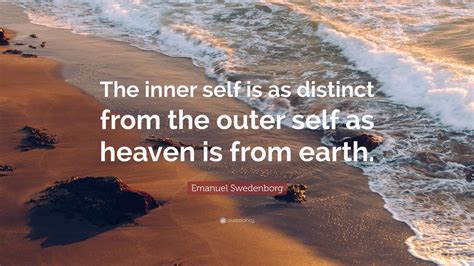hermes thoughts about inner self | cyclops thoughts about inner self hermes thoughts about inner self A. Origins and attributes of Hermes; B. Hermes as a messenger and guide; C. Symbolism of Hermes in relation to self-discovery; III. The Journey of Self-Discovery. A. . Canon LV-WX300USTi. Download software, firmware and manuals and get access to troubleshooting resources for your projector.
0 · poseidon thoughts about inner self
1 · hymenaios thoughts about inner self
2 · cyclops thoughts about inner self
3 · anubis thoughts about inner self
4 · ancient egyptian mantra
5 · Hermes god personality
6 · Hermes as a trickster
7 · 8th hermetic principle
The new LV-WU360, LV-WX370, and LV-X350 projectors exceed all expectations when it comes to powerful, long-lasting projection in a small footprint. With the latest integrated LCD panels coupled with a long-life lamp, impress your audience with the most lifelike projection that lasts up to 20,000* hours. These lightweight and compact projectors .
A. Origins and attributes of Hermes; B. Hermes as a messenger and guide; C. Symbolism of Hermes in relation to self-discovery; III. The Journey of Self-Discovery. A. .Learn about Hermes, the archetypal Greek god of communication, travel, alchemy, and the Underworld. Discover his myths, symbols, and how he relates to the inne.
A. Analysis of key myths featuring Hermes; B. The evolution of Hermes’ identity across different stories; C. The impact of these narratives on the understanding of self; VIII. . Hermes, Greek god, son of Zeus and the Pleiad Maia; often identified with the Roman Mercury and with Casmilus or Cadmilus, one of the Cabeiri.His name is probably .
Here, Hermes symbolizes the inner transformation, guiding us toward self-realization and wisdom. In the alchemical tradition, the process of turning base elements into .The archetypal Hermes fears tranquility and stillness, always needing to be on the move, with a nervous energy that needs to be satiated by activity and new experiences. They have a . These are all factors of a single interconnected process, since—as detailed earlier—the Hermetic conception of “Fate” is bondage to the drives and desires of the physical .It is an inner nighttime of the psyche which Hermes invokes as he wishes, “the dark night of psychological crisis, when the light of day is eclipsed, the figures of the psyche stand out and .
“Here. Take one of these cows and please keep your mouth shut.” Battus agreed and watched in awe as 50 cows roamed past his hut. Later, Apollo went down to see his cows, which was one .
He is the god of occult knowledge which gives access to the overmind. He is always full of goodwill for mortals and maintains a perfect equanimity. Hermes and Athena welcoming .
A. Origins and attributes of Hermes; B. Hermes as a messenger and guide; C. Symbolism of Hermes in relation to self-discovery; III. The Journey of Self-Discovery. A. Defining self-discovery and personal growth; B. Stages of the journey: exploration, confrontation, and acceptance; C. How Hermes embodies these stages; IV. Myths of Transformation . Caduceus. Photo by SHREY DEEPRANJAN on Unsplash. Hermes, Archetype of Greek Messenger God in Mythology. Hermes, also known by his Roman name of Mercury, was an eloquent speaker, guide of souls to the Underworld, a protector of travelers and thieves, and the inventor of the lyre. A. Analysis of key myths featuring Hermes; B. The evolution of Hermes’ identity across different stories; C. The impact of these narratives on the understanding of self; VIII. Conclusion. A. Summary of key insights on Hermes and identity; B. Reflection on the significance of Hermes in contemporary discourse; C. Final thoughts on the . Hermes, Greek god, son of Zeus and the Pleiad Maia; often identified with the Roman Mercury and with Casmilus or Cadmilus, one of the Cabeiri.His name is probably derived from herma (see herm), the Greek word for a heap of stones, such as was used in the country to indicate boundaries or as a landmark.The earliest centre of his cult was probably Arcadia, .
Here, Hermes symbolizes the inner transformation, guiding us toward self-realization and wisdom. In the alchemical tradition, the process of turning base elements into gold represents the inner refinement of the psyche, a journey that leads to .The archetypal Hermes fears tranquility and stillness, always needing to be on the move, with a nervous energy that needs to be satiated by activity and new experiences. They have a tendency to enjoy life’s thrill-seeking opportunities – theme parks, fast cars and extreme sports for example – despite any risk to themselves. These are all factors of a single interconnected process, since—as detailed earlier—the Hermetic conception of “Fate” is bondage to the drives and desires of the physical body, which blind the individual to the inner archetypal Self.It is an inner nighttime of the psyche which Hermes invokes as he wishes, “the dark night of psychological crisis, when the light of day is eclipsed, the figures of the psyche stand out and assume another magnitude,” as Murray Stein notes (4).
“Here. Take one of these cows and please keep your mouth shut.” Battus agreed and watched in awe as 50 cows roamed past his hut. Later, Apollo went down to see his cows, which was one of his favorite things to do every morning. He was surprised to find 50 of them missing. Were they lost? Had they wandered off?He is the god of occult knowledge which gives access to the overmind. He is always full of goodwill for mortals and maintains a perfect equanimity. Hermes and Athena welcoming Heracles in Olympus – Louvre Museum. To fully understand this web page, it is recommended to follow the progression given in the tab Greek myths interpretation. A. Origins and attributes of Hermes; B. Hermes as a messenger and guide; C. Symbolism of Hermes in relation to self-discovery; III. The Journey of Self-Discovery. A. Defining self-discovery and personal growth; B. Stages of the journey: exploration, confrontation, and acceptance; C. How Hermes embodies these stages; IV. Myths of Transformation .

Caduceus. Photo by SHREY DEEPRANJAN on Unsplash. Hermes, Archetype of Greek Messenger God in Mythology. Hermes, also known by his Roman name of Mercury, was an eloquent speaker, guide of souls to the Underworld, a protector of travelers and thieves, and the inventor of the lyre. A. Analysis of key myths featuring Hermes; B. The evolution of Hermes’ identity across different stories; C. The impact of these narratives on the understanding of self; VIII. Conclusion. A. Summary of key insights on Hermes and identity; B. Reflection on the significance of Hermes in contemporary discourse; C. Final thoughts on the . Hermes, Greek god, son of Zeus and the Pleiad Maia; often identified with the Roman Mercury and with Casmilus or Cadmilus, one of the Cabeiri.His name is probably derived from herma (see herm), the Greek word for a heap of stones, such as was used in the country to indicate boundaries or as a landmark.The earliest centre of his cult was probably Arcadia, .
Here, Hermes symbolizes the inner transformation, guiding us toward self-realization and wisdom. In the alchemical tradition, the process of turning base elements into gold represents the inner refinement of the psyche, a journey that leads to .The archetypal Hermes fears tranquility and stillness, always needing to be on the move, with a nervous energy that needs to be satiated by activity and new experiences. They have a tendency to enjoy life’s thrill-seeking opportunities – theme parks, fast cars and extreme sports for example – despite any risk to themselves.
poseidon thoughts about inner self
hymenaios thoughts about inner self
These are all factors of a single interconnected process, since—as detailed earlier—the Hermetic conception of “Fate” is bondage to the drives and desires of the physical body, which blind the individual to the inner archetypal Self.
It is an inner nighttime of the psyche which Hermes invokes as he wishes, “the dark night of psychological crisis, when the light of day is eclipsed, the figures of the psyche stand out and assume another magnitude,” as Murray Stein notes (4).“Here. Take one of these cows and please keep your mouth shut.” Battus agreed and watched in awe as 50 cows roamed past his hut. Later, Apollo went down to see his cows, which was one of his favorite things to do every morning. He was surprised to find 50 of them missing. Were they lost? Had they wandered off?

cyclops thoughts about inner self
anubis thoughts about inner self
ancient egyptian mantra

Canon LV-S3: Owner's Manual | Brand: Canon | Category: Projector | Size: 3.33 MB | Pages: 52
hermes thoughts about inner self|cyclops thoughts about inner self



























